
Tips for Parent-Caregiver Communication
Strategies for open communication about children’s development.
As parents and caregivers, you are part of a childcare team to raise kids in safe spaces with lots of love and care—and teams work best with great communication. Being open and honest about children’s development and needs is what is best for little ones. Here are some tips to make these conversations easier:
- Little ones listen. Choose a time and place where you can talk alone, away from a child’s ears.
- Be aware of your feelings. Take a minute to be aware of your feelings. If you’re feeling stressed, angry, or overwhelmed, it may be better to have the conversation at a time when you’re calmer.
- Share the positive. Share something that you feel the parent/caregiver/child is doing well. When positive things are shared regularly, it can help put difficult conversations in perspective.
- Take your time. Schedule enough time to talk so that no one feels rushed, or that they didn’t have the opportunity to share their thoughts and feelings.
- Create a judgment-free zone. Parenting and caregiving styles can be very personal. There may be some differences in styles between parents and caregivers, but the goal is to share thoughts and philosophies, and do what is best for the child.
- Use examples. Instead of making general statements (“You don’t help James with his separation anxiety”), support with examples: “I noticed that James was upset when I was getting ready to leave him the other day. I’m concerned that’s happening often.”
- Brainstorm solutions. Rather than leave it to one person to come up with a solution to the problem, brainstorm solutions together: “I’m concerned about how upset James gets when I leave him. Maybe it would help if you got him started on an activity right away to distract him. What else do you think might help? Is there anything I can do?”
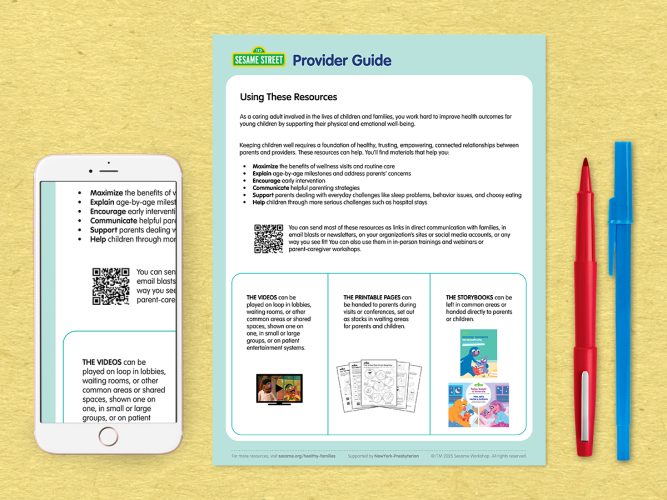
For Providers: Using These Resources
Print and refer to this page as you implement the materials in this initiative.
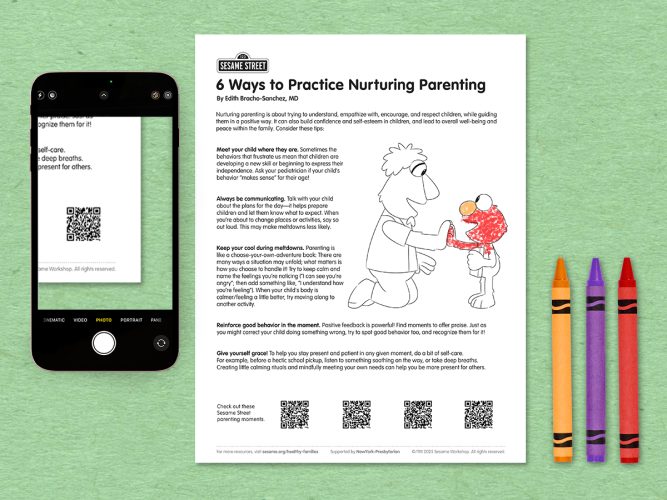
6 Ways to Practice Nurturing Parenting
Tips from a pediatrician on understanding, empathizing with, encouraging, and positively guiding children.
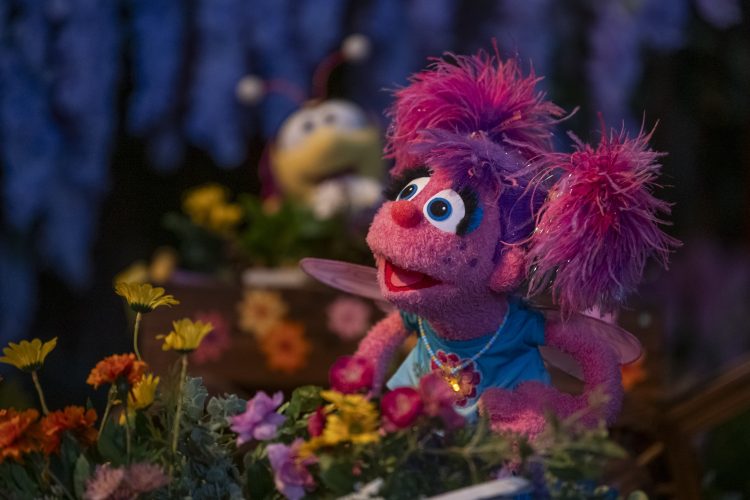
Watch and Play: Abby's Magical Beasties
Watch this episode and explore ways to extend the learning at home.
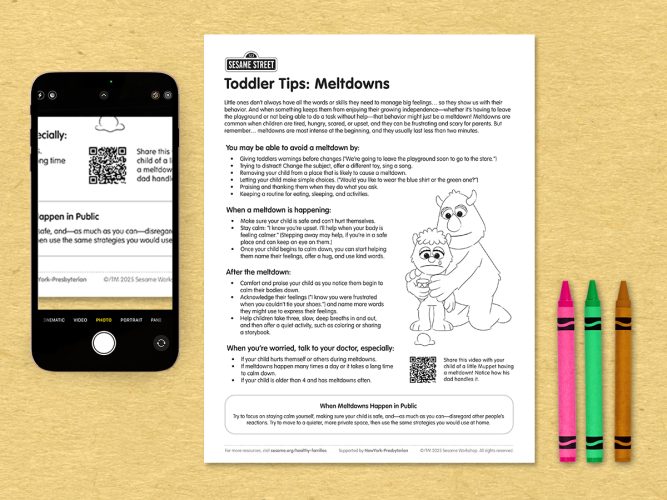
Toddler Tips: Meltdowns
Strategies for during and after a meltdown…and even some ways meltdowns might be avoided.
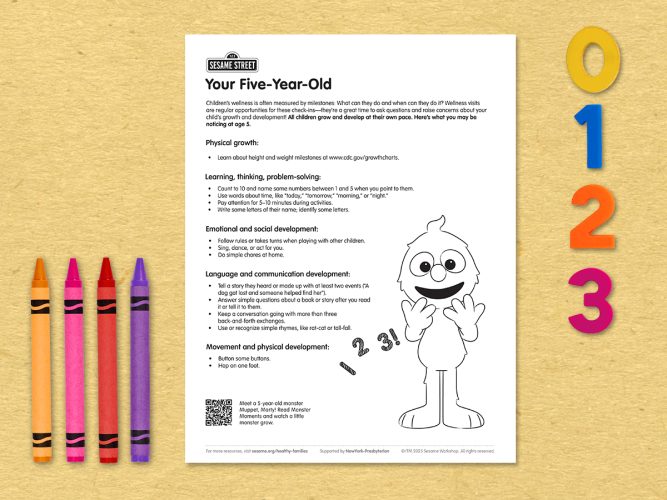
Milestones: Your Five-Year-Old
All children grow and develop at their own pace; use this chart to guide your expectations and observations so you can talk to your child’s pediatrician about questions or concerns.
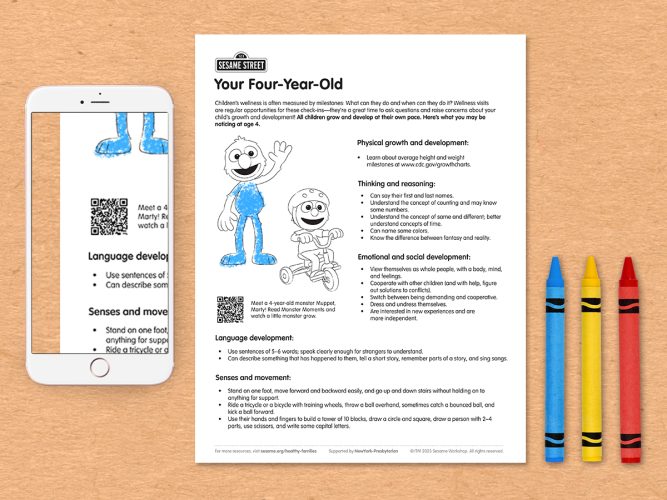
Milestones: Your Four-Year-Old
All children grow and develop at their own pace; use this chart to guide your expectations and observations so you can talk to your child’s pediatrician about questions or concerns.
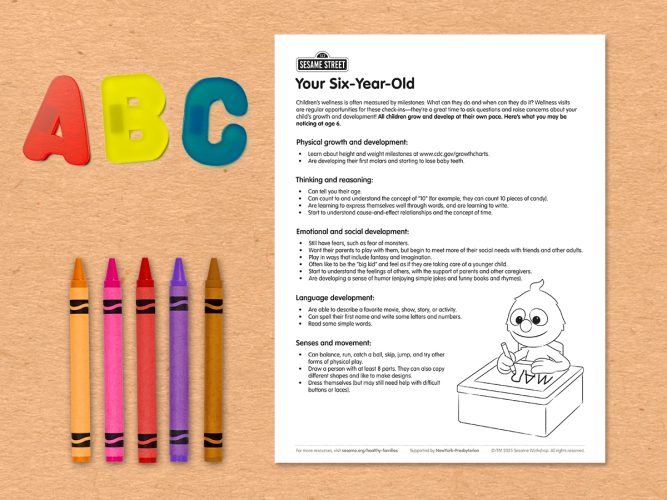
Milestones: Your Six-Year-Old
All children grow and develop at their own pace; use this chart to guide your expectations and observations so you can talk to your child’s pediatrician about questions or concerns.
